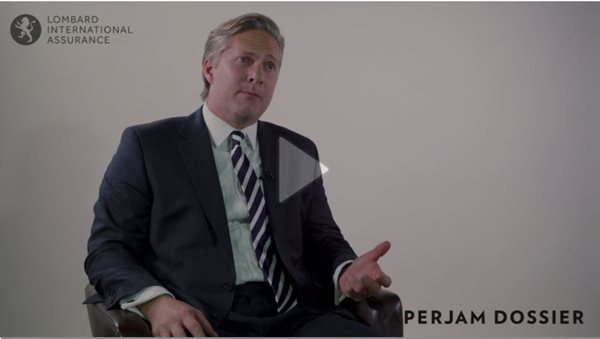Article initially published on Paperjam. Read the article here.

In today’s world, innovation and technology have become buzzwords which are often misinterpreted. 20+ years’ experience focusing on delivering operational improvements across industries have proven to me that innovation does not simply equate to technology - it goes way beyond that. Here is why.
I joined Lombard International Assurance, the European leader in wealth planning solutions via unit-linked life insurance, as Chief Operating Officer (COO) Europe over two years ago. By nature, the COO is the architect of a company’s operations, responsible for designing the operational strategies and overseeing their implementation. Increasing operational efficiency, productivity and profitability are universal goals for COOs no matter which sector one works in… but that is not enough. We must put the partner and client experience at the centre of all we do. This process goes beyond technology.
In my role at Lombard International Assurance, which is a high growth global enterprise working in the regulated and specialised field of wealth structuring for HNWIs and UHNWIs, I act a catalyst for change to ensure we stay at the forefront of the industry.
«Our clients expect excellence and we are committed to delivering it.»
As simplistic as it may seem, for any forward-looking company, it all starts with a clear definition of the company’s core purpose and raison d’etre. In our case, it is about creating the best tailor-made wealth and succession planning solutions for internationally mobile HNW individuals, families and institutions. Our clients expect excellence and we are committed to delivering it. This means that all our endeavours must have a clear answer to "how will this contribute to enhance our service delivery towards our partners and clients, increase their satisfaction and advocacy?”
It is therefore essential to have a holistic view on the underlying factors of operational performance to identify what’s working well, what isn’t and what’s missing.
As detailed in a recent McKinsey article on ‘The productivity imperative in insurance’[1] these are productivity boosters, which can be regrouped into the following categories: ‘functional excellence that will further enhance a specific parts of an organisation, ‘structural simplification’ referring to significant changes within a company’s business model, ‘business transformation’ including radical changes to an organisation, and last but not least ‘enterprise agility’ which includes developing momentum productivity.
«In 2018, we introduced Robotic Process Automation (or RPA) to automate basic recurring tasks thereby freeing up our teams to focus their time and effort on more added-value actions.»
We have had a number of successful and tangible real life examples of technology-based solutions that have contributed to increasing productivity and operational efficiency. For example, in 2018, we introduced Robotic Process Automation (or RPA) to automate basic recurring tasks thereby freeing up our teams to focus their time and effort on more added-value actions. This resulted in tasks being completed three times faster than the manual process for KYC and other manually intensive work.
Another example is the recent launch, in the French market, of our new digital on boarding capability using our Connect platform. This provides a fully secure and user friendly experience to our distribution partners as they set up a new policy with us. We are seeing excellent early results with double-digit growth through this channel and anticipate an estimated 60% or more reduction in servicing. This achievement enables us to consider expanding the functionality in other markets in 2020.
However, the success of these projects, and the sustainable innovation they bring has not been determined by the technology we chose to use - I am a firm believer that this is per se an output of a well understood and defined set of needs, of the clear categorisation of actions and related strategy, as well as the alignment of all key stakeholders and contributors.
«In my view, the adoption rate of a given technology is often more important than the technology itself.»
Moreover, throughout these projects, cost is always a key consideration. While investments in technology will continue to represent an increasing percentage of total operating costs (+12% for the past five years globally) in our sector, financial discipline is of utmost importance, as is the most appropriate allocation of any investment to deliver the required returns.
In my view, the adoption rate of a given technology is often more important than the technology itself, and an adequate focus should be put on continuous staff and partner training, especially in a sector where the human element is the vital asset.
Ultimately I believe that technology is an enabler of capacity and that innovation mostly depends on the talented teams of people you work with.
 |
Paul Upchurch
Chief Operating Officer, Europe
Lombard International Assurance |